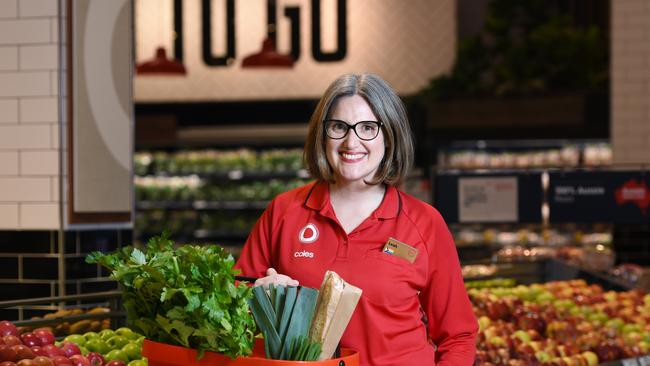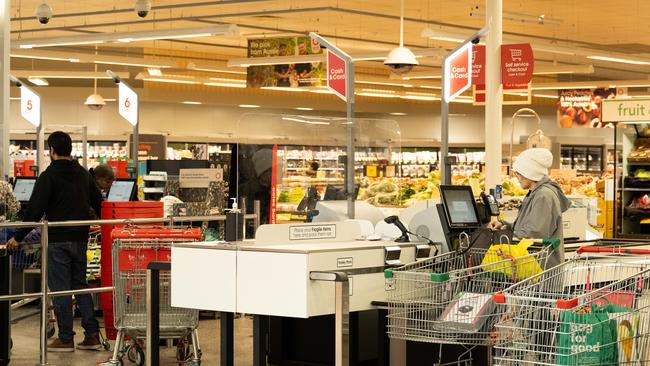Supermarket giant Coles reports profit slide even as sales lift
Unveiling its latest half-yearly results, the supermarket giant has detailed the cost-of-living pressure its customers are facing.
Retail
Don't miss out on the headlines from Retail. Followed categories will be added to My News.
Budget-savvy shoppers should anticipate further discounts and specials at Coles, its chief executive Leah Weckert has claimed, as the supermarket giant’s own research showed its customers were increasingly struggling with mortgage repayments.
Releasing its half-year results, Coles Group, the country’s second largest supermarket retailer, reported an 8.4 per cent fall in net profit to $589m in the second half of 2023, down from $643m over the same period a year earlier.
The result came despite a 3.7 per cent jump in group sales to $22.22bn, up from $21.42bn in the final six months of 2022, driven by easing supply chain bottlenecks, product discounts and promotions.

A very high proportion of customers, Ms Weckert said, were making choices and changes to minimise the cost of their weekly grocery bill.
“We’re seeing (customers) moving into cheaper brands, cheaper cuts of meat, buying more bulk, buying more frozen … we’re definitely getting a lot of feedback from customers that they are eating more at home,” she said.
According to Coles’ internal customer research, mortgage repayments had overtaken grocery bills as the most acute cost-of-living concern; however, many shoppers were still seeking value.
“They continue to seek more specials, seek loyalty offers and use catalogues and apps to help manage their grocery costs,” Ms Weckert said.
“We need to be sharper and sharper in terms of the value proposition that we are providing, and that is something we are very focused on.”
The retailer, which has come under increased scrutiny in recent months amid allegations of price gouging, also declared a flat interim dividend of 36c a share, fully franked.
Defending claims the retailer opportunistically raised its prices during the high inflation environment and used its market power to squeeze suppliers, Ms Weckert said Australia had a “competitive” and “vibrant” retail food retailing market.

“We are seeing a lot of noise in the environment at the moment but most of the conversations that I’m having with suppliers are indicating we’re in a very good spot in terms of our relationships,” she said.
“If you go to a shopping centre, you can easily have a choice of two to three different supermarkets. You can usually choose from a number of independents, like bakeries, butchers … there is a huge variety in terms of what the customer has to choose from.”
Price growth had moderated at Coles, with falling shelf prices for fruit, vegetables and meat. However, milk prices and packaged products were keeping overall consumer prices elevated at 3 per cent.
Ms Weckert said the business’s investments in new automated distribution and customer fulfilment centres had weighed on profitability, while profits for continuing operations were broadly flat.
Group earnings before interest and tax (EBIT) sank 5.1 per cent from the year earlier to $1.06bn. In the supermarket segment of its business, earnings rose 1.6 per cent, while the liquor division posted a 5 per cent rise.
Supermarket margins slipped to 5.1 per cent, down from 5.3 per cent a year prior, but were still above analysts’ forecasts for a 4.9 per cent result.
Reporting its half-year results last week, rival supermarket chain Woolworths posted a margin of 6 per cent.
Originally published as Supermarket giant Coles reports profit slide even as sales lift


